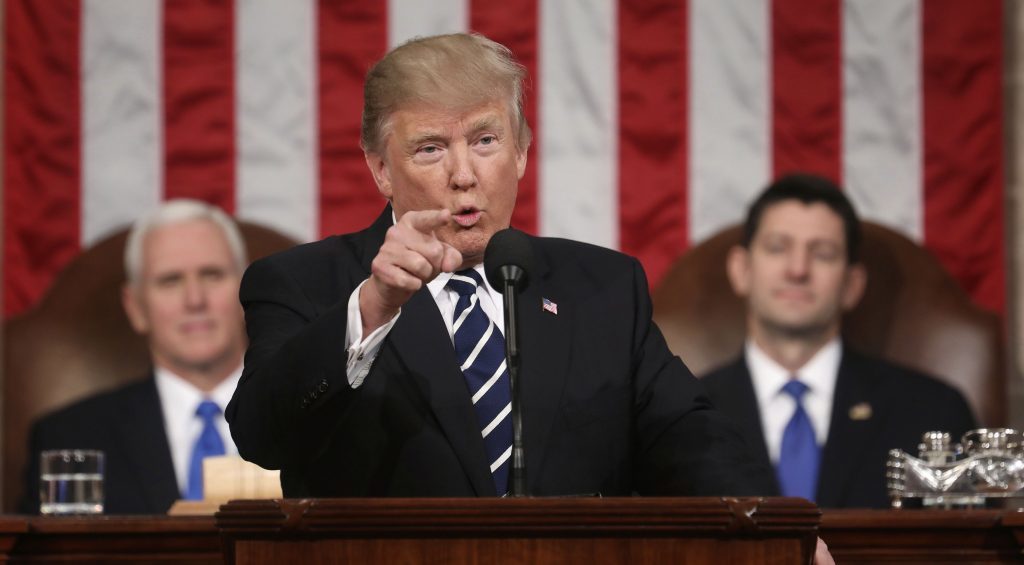
US president Donald Trump has told Saudi Arabia’s King Salman that a united Gulf Cooperation Council is “critical to defeating terrorism and promoting regional stability”.
It is a change in tone for the president who had appeared to side with Saudi Arabia and other countries against Qatar in a series of tweets on Tuesday that seemed to endorse the accusation that Qatar funds terrorist groups.
He also sought to cast the anti-Qatar action led by the Saudis and the United Arab Emirates as the result of his trip last month to Riyadh, where he pressed leaders from dozens of Arab and Muslim governments, including Qatar’s emir, to combat extremism.
Mr Trump said he had told the kings, presidents and prime ministers that funding “Radical Ideology” can’t be tolerated, and “Leaders pointed to Qatar – look!”
“They said they would take a hard line on funding… extremism, and all reference was pointing to Qatar. Perhaps this will be the beginning of the end to the horror of terrorism!” Mr Trump said on Twitter, claiming his visit to Saudi Arabia was “already paying off”.
Later, he appeared to take a more measured tone during a call with King Salman. Mr Trump told King Salman that a united Gulf Cooperation Council is “critical to defeating terrorism and promoting regional stability,” according to a White House readout of the conversation.
The council includes Qatar, Saudi Arabia, the United Arab Emirates, Bahrain, Oman and Kuwait.
The president’s sharp critique of Qatar pulled the US directly into a conflict that American diplomats had wanted the bickering parties to resolve among themselves.
The US was not planning a major mediation role, a State Department official said, pointing to offers from Turkey and Kuwait to intervene in what is emerging as the worst diplomatic crisis in the Persian Gulf in decades.
The fracas pits Qatar – the world’s biggest producer of liquefied natural gas – against Saudi Arabia, the UAE, Egypt and Bahrain. Those countries on Monday severed diplomatic ties with Qatar, leading to suspended flights and regional ports closed to Qatari ships as anxious residents started stockpiling food.
Qatar’s neighbours have long accused the country of tolerating or even encouraging support for extremist groups, including al Qaida’s Syria branch – all of which Qatar denies.
But its independent foreign policy has led to various tensions with its neighbours. The region’s Sunni states bristle at Qatar’s less hostile position toward Shiite Iran and object to its backing groups such as the Muslim Brotherhood, whose ideology challenges the system of hereditary rule in Saudi Arabia, the UAE and elsewhere.
For Mr Trump, the rift has emerged as a key test of his goal to unite the region around destroying IS and other extremist groups, and containing Iranian influence.
Recommended for you
